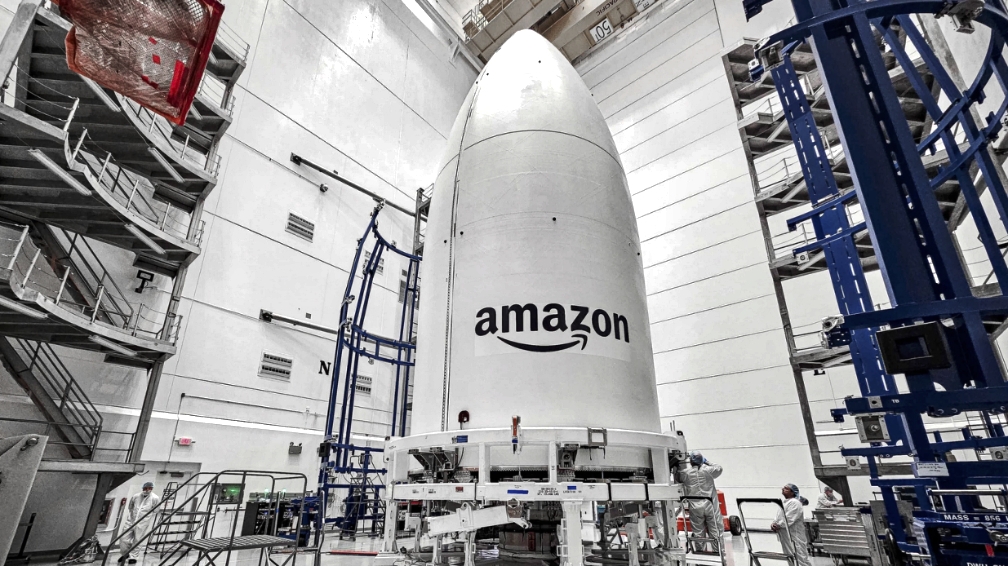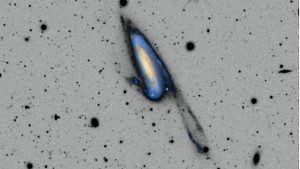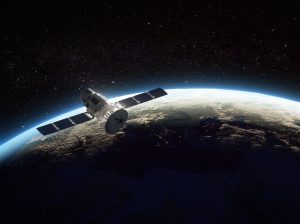Amazon’s Project Kuiper Protoflight Confirmed a 100% Success
22nd Nov 2023
Amazon’s Project Kuiper has validated all systems and subsystems on its test satellites. Moreover, the project successfully demonstrated the first-ever two-way video call over Amazon’s communications network. Amazon announced the results of the tests in a 16th November post.
Amazon’s Project Kuiper Progresses with Successful Protoflight Mission
On 6th October, Amazon launched its pair of prototype satellites from Florida. A United Launch Atlas V rocket, emblazoned with the Amazon logo, was launched from Cape Canaveral at approximately 2 pm (ET), carrying the test satellites. This milestone brings the program a step closer to its plan to deploy operational satellites into space.
Following the launch, each major system and subsystem on the test satellites, including the solar arrays, flight computers, advanced radio frequency communications payload, and Amazon’s propulsion system, exhibited nominal to above-average performance.
The project team verified the design and architecture of their satellite constellation through such tests, including showcases of 4K video streaming and video calls via the network. Now that the initial stages of testing are complete, the project is headed toward large-scale satellite manufacturing prior to a full-scale deployment by mid-2024. It will then move on to beta testing towards the end of the year.
Kuiper was an idea on a piece of paper a few years ago, and everything we’ve learned so far from our Protoflight mission validates our original vision and architecture. We still have a lot of hard work ahead, and scaling for mass production won’t be easy. To get these results on your very first mission though—and so quickly after launch—is an incredible feat, and it’s only possible because of the expertise and dedication of our team here at Amazon.
Project Kuiper vice president of technology, Rajeev Badyal.
About Project Kuiper’s Long-Term Plans
In April 2022, Amazon announced contracts with three aerospace companies, namely ULA, Arianespace, and Blue Origin, to send its Project Kuiper satellites into low Earth orbit. As part of the agreement, ULA’s Vulcan will conduct 38 launches, Ariane 6 by Arianespace will conduct 18 launches, and Blue Orgin’s New Glenn will conduct 12. Additionally, there are options for 15 more launches.
Amazon began Project Kuiper to offer fast and affordable broadband on a global scale to underserved communities. Amazon’s ultimate plan is to create a network of 3,236 satellites in low Earth orbit.







Thank you for your comment! It will be visible on the site after moderation.